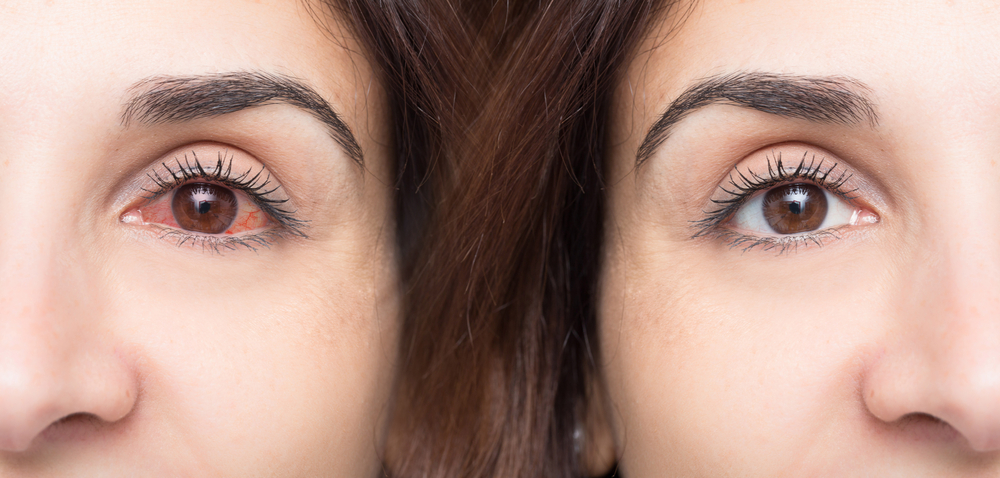

Dry eyes can be a chronic condition that affects millions of people worldwide. It occurs when your tears are not able to provide adequate lubrication for your eyes. This can lead to discomfort, irritation, and even vision problems. There are several causes of dry eyes, including aging, hormonal changes, certain medications, and environmental factors such as low humidity or excessive screen time. The symptoms of dry eyes can vary from person to person but commonly include a gritty or burning sensation, redness, blurry vision, and increased sensitivity to light.
The Importance of Managing Dry Eye
While there are various treatment options available for dry eyes, making certain lifestyle changes can significantly help in managing the condition. By incorporating these easy tips into your daily routine, you can alleviate the discomfort and improve your overall eye health.
Tip 1: Stay Hydrated
One of the simplest and most effective ways to combat dry eyes is to stay hydrated. Dehydration can worsen the symptoms of dry eyes, so it is important to drink plenty of water throughout the day. Aim for at least eight glasses of water daily, and increase your intake if you live in a dry climate or engage in activities that cause excessive fluid loss, such as exercising or spending time in air-conditioned environments.
Tip 2: Follow a Balanced Diet Rich in Omega-3 Fatty Acids
Your diet plays a crucial role in maintaining your eye health. Incorporating foods that are rich in omega-3 fatty acids can help reduce inflammation and promote healthy tear production. Include foods like fatty fish, flaxseeds, chia seeds, and walnuts in your diet.
Tip 3: Take Regular Breaks from Digital Screens
In today's digital age, it is common to spend long hours staring at screens. However, excessive screen time can contribute to dry eyes. To prevent this, make it a habit to take regular breaks and give your eyes a rest. Follow the 20-20-20 rule: every 20 minutes, look away from your screen and focus on an object at least 20 feet away for 20 seconds. This simple practice can help reduce eye strain and minimize the risk of developing dry eyes.
Tip 4: Use a Humidifier to Add Moisture to the Air
Dry indoor air can exacerbate the symptoms of dry eyes. Using a humidifier in your home or office can help add moisture to the air, preventing your eyes from becoming excessively dry. Aim for a humidity level between 30% and 50% for optimal comfort.
Tip 5: Avoid Smoke and Other Irritants
Smoke, whether from cigarettes or other sources, can irritate your eyes and worsen dryness. Avoiding smoke is crucial for maintaining good eye health. Additionally, be mindful of other irritants such as dust, pollen, and pet dander, as they can trigger dry eye symptoms. If you are exposed to these irritants, consider wearing protective eyewear or using artificial tears to keep your eyes lubricated.
Tip 6: Practice Good Eye Hygiene and Avoid Rubbing Your Eyes
Maintaining good eye hygiene is essential for preventing and managing dry eyes. Avoid touching or rubbing your eyes, as this can further irritate them. If you have an urge to rub your eyes, try blinking several times or gently massaging your temples instead. Additionally, make sure to clean your eyelids and lashes regularly to remove any debris or bacteria that may contribute to dryness.
When to See an Optometrist for Dry Eyes
While these lifestyle tips can be beneficial for managing mild to moderate dry eye symptoms, it is important to seek professional help if your symptoms persist or worsen. An optometrist can evaluate your condition and provide appropriate treatment options. They may recommend lubricating eye drops, prescription medications, or other therapies to alleviate your dry eye symptoms effectively.
If you are experiencing persistent dry eye symptoms, consult with our optometrist to determine the best treatment plan for you, visit Quick Vision at our office in Vincennes, Indiana, or call (812) 255-0559 to schedule an appointment today.











